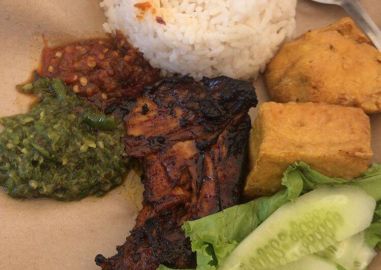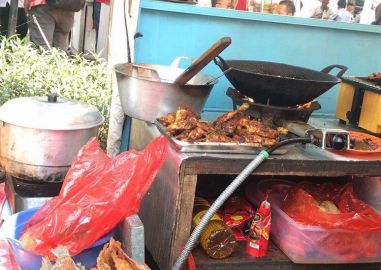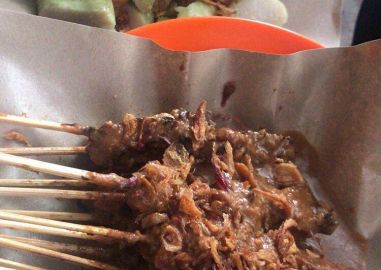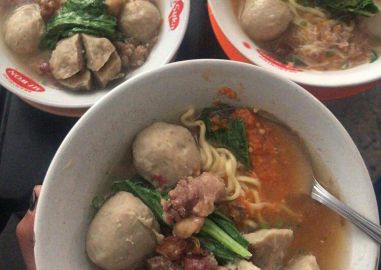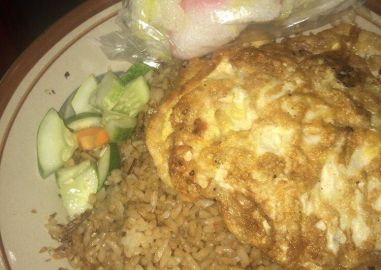Around 4:30am, the adhan (call to prayer) is blasted from the mosque behind my boarding house. It never bothered me- not because of the fact that I’m a deep sleeper, but because I hadn’t even gone to bed yet. I thought that after 15 hours of travelling to Jakarta, I would be ready to pass out and wake up at a regular time, but my excitement kept me up until after sunrise. This wasn’t really an issue for the first few days, since the city was fasting for Ramadan and most businesses were closed anyways. There are also a TON of cats everywhere- scraggly cats, mama cats with playful kittens following, pregnant cats, loud cats, and timid cats, usually waiting near the food stalls for a scrap to fall. After Eid, the city started to revert back to what people kept telling me was “normal”: insane traffic where there are no lanes, motorbikes called “ojeks” weaving between cars, children trying to sell you tissue packets for a few rupiah, all different kinds of street food lining the road. There is so much commotion and activity in the streets, but an organized chaos that somehow works.
Food is definitely a large part of the culture here. Every street you turn into, there are a plethora of food stalls selling things like deep fried tempeh, meatballs, fried rice and noodles, satay, soups, fresh juice, and so much more. And there are different flavors of all of these things, like Malang and Padang, each with their own complex and specific flavors. Sambal, which is a spicy condiment that comes with basically everything, is as diverse as the food is. You can definitely buy it in stores, but every food stall, restaurant, and granny has their own recipe that is unique and delicious in of itself. There are also a ton of coffee shops on every block, I’m surprised that Starbucks hasn’t gone out of business yet.
The most helpful tool by far in Jakarta is Gojek, it’s like Uber on steroids. Besides a car, you can order a motorbike, food, groceries, tickets, a cleaner, and even a massage, but I usually use it for the motorbikes. I didn’t think the language barrier would be that big of a deal, until my ojek drivers would call me to confirm my location, and all I could say was “ok.” I don’t think I have ever heard spoken Bahasa in my life until I got off the plane. My go to phrase now whenever I interact with a driver, store clerk, street food vendor, and asking for directions is “kamu bisa berbahasa Inggris?” (Can you speak English?) My host parents have assured me that Bahasa is one of the easiest languages to learn, and I have been practicing with anyone that has enough patience.
Perhaps it is the easy-going culture of Indonesians that has helped me feel included, but I haven’t met anyone that gave me any disrespect. In the US, it is not uncommon to find fast food and retail workers with an attitude, or be a victim of road rage. Here, even if people don’t understand me, I am met with a smile, slight head bow, a “terima kasih” (thank you), and an attempt at conversation in broken Baha-nglish. People here have been so welcoming and friendly, generous with their time, patient to communicate, and genuinely positive people to be around. I feel so welcomed, appreciated, and important in this corner of the world. I don’t know if I have ever experienced this culture of hospitality and consideration for others.

